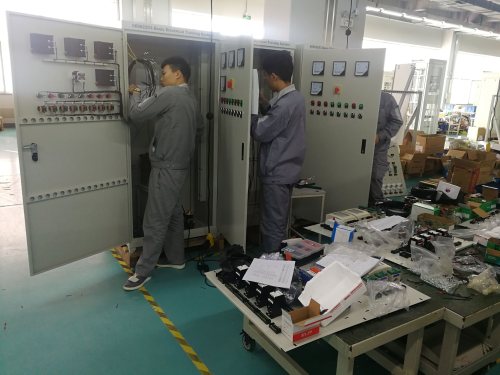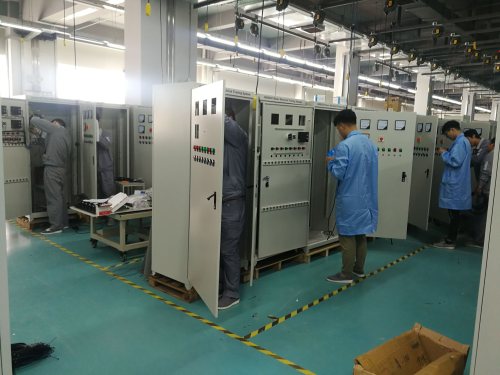ZT0022 Wet Cooling Tower Vocational Education Equipment For School Lab Heat Transfer Demonstrational Equipment
I. Product content
1 Product overview
1.1 Overview
The ZT 0022 countercurrent wet ventilation cooling tower experimental platform is a training device used by the laboratory to verify the principle of forced convection heat transfer in the cooling tower. During the experiment, the water in the circulation loop is sprayed on the tower packing through the atomization spray device. Fans are arranged under the tower to realize forced convection heat exchange. During the process, part of the heat is transferred from water to the air, and the water temperature, air temperature, air humidity, air flow, water flow, etc. are recorded through the meter in the circulation of the experimental platform. The data achieves the purpose of experimental analysis. The data can be directly displayed on the display screens of the console, or transmitted to the PC through a USB device for further processing.
1.2 Features
The water flow and air flow in the working cycle of the experimental bench can be adjusted;
The data of each point of the workbench cycle can be digitally displayed by instruments (including water temperature, air temperature, water flow, air flow);
The data of each point of the workbench cycle can be displayed on the PC through a USB device;
According to the needs of the design experiment, the workbench is equipped with a replaceable cooling tower body for comparison research;

2 Preview Content
2.1 The main factors affecting heat and moisture transfer
In a cooling tower under normal operation, the main factors that affect the heat transfer process of the cooling tower are the inlet air wet bulb temperature (absolute saturation temperature), inlet water temperature, air volume, and circulating water volume. These four factors, of which water volume and air volume The ratio of is called the water-to-air ratio.
The influence of the inlet air wet bulb temperature:
Control other influencing factors unchanged (inlet water temperature, water volume, air volume), the heat transfer power (enthalpy difference) of the entire heat transfer process decreases with the increase of outdoor air wet bulb temperature, which means that the cooling tower's heat dissipation capacity is worse .
The influence of inlet water temperature:
Control other factors unchanged, only change the inlet water temperature, the heat exchange power of the entire heat exchange process increases with the increase of the inlet water temperature, which means that the cooling tower has a stronger heat dissipation capacity.
The influence of air flow:
Control other factors unchanged and only change the air flow. As the air volume increases, the air volume per unit of water contact increases, and the cooling tower's heat dissipation capacity increases.
Influence of water volume:
Control other factors unchanged, only change the water volume. As the cooling tower's circulating water volume increases, the air volume per unit of water contact decreases, and the heat exchange decreases. The outlet water temperature increases with the increase in the inlet temperature and outlet temperature of the circulating cooling water. The temperature difference decreases, so the cooling capacity of the cooling tower decreases.
